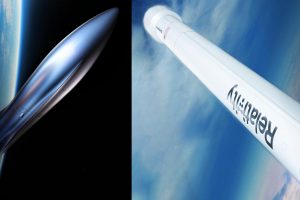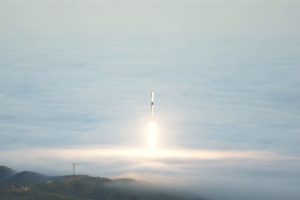- 🚀 Rocket Lab plans to launch Synspectives’ Strix-3 satellite from Launch Complex 1 in New Zealand on March 13th.
- 🛰️ This will be the 4th mission dedicated to deploying Synspectives synthetic aperture radar (SAR) satellites.
- 🌍 Synspective aims to have a constellation of 30 SAR satellites in orbit by the end of the decade.
- 📡 Each satellite weighs approximately 100 kg and has a lifespan of 5 years.
- 🛠️ Rocket Lab will not attempt to recover the Electron first stage for this launch.
- 🗓️ This will be Rocket Lab’s 3rd flight of the year, with another scheduled for March 20th from Wallops, Virginia.
Space exploration continues to captivate humanity’s imagination, and with each new mission, we inch closer to unlocking the mysteries of the cosmos. One such mission on the horizon is Rocket Lab’s collaboration with Synspectives, set to launch the Strix-3 satellite from Launch Complex 1 in New Zealand on March 13th. This endeavor marks a significant step forward in satellite technology and space research.
A Closer Look at the Mission
Rocket Lab, known for its innovative approach to space launches, is gearing up for its 4th mission in partnership with Synspectives. The focus of this mission lies in deploying Synspectives’ synthetic aperture radar (SAR) satellites. These satellites play a crucial role in Earth observation, providing valuable data for various applications, including environmental monitoring, disaster response, and urban planning.
Synspectives’ Vision for the Future
Synspectives has ambitious plans for its SAR satellite constellation, aiming to have 30 satellites orbiting the Earth by the end of the decade. This extensive network will revolutionize our ability to monitor and understand our planet, offering insights into global phenomena with unprecedented detail and accuracy.
The Technical Details
Each SAR satellite weighs approximately 100 kg and boasts a lifespan of 5 years. Equipped with advanced technology, these satellites can acquire ground resolution data ranging from 1 to 3 meters, even in adverse weather conditions. Such capabilities pave the way for enhanced decision-making and resource management on a global scale.
Rocket Lab’s Approach
For this particular launch, Rocket Lab has opted not to recover the Electron first stage, highlighting the company’s commitment to efficiency and cost-effectiveness. Despite this decision, Rocket Lab continues to push the boundaries of space technology, leveraging its expertise to deliver payloads into orbit reliably and efficiently.
Looking Ahead
As Rocket Lab embarks on its 3rd flight of the year, with another mission scheduled for March 20th from Wallops, Virginia, the future of space exploration looks promising. With each successful launch, we gain invaluable insights into our universe, paving the way for future discoveries and advancements.
In conclusion, Rocket Lab’s collaboration with Synspectives represents a significant milestone in the realm of space exploration. Through cutting-edge technology and ambitious goals, these organizations are reshaping our understanding of the cosmos and the role of satellite technology in our daily lives.





